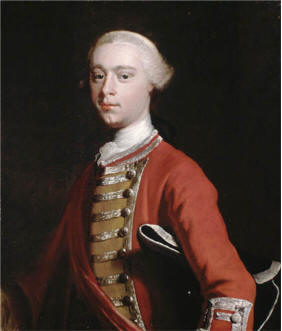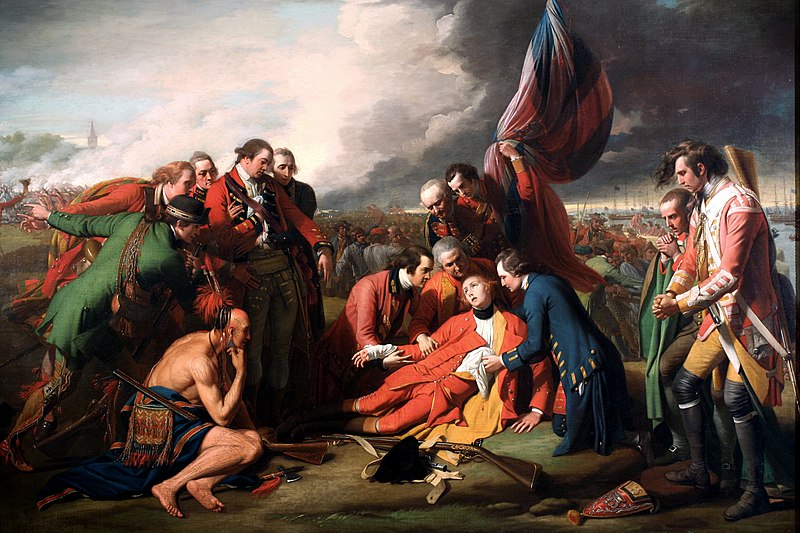
At dead of night, Wolfe led the the 5,000 British and American soldiers with blackened faces silently downriver in rowing boats till they were opposite the Heights of Abraham. As he was borne along the treacherous river whose rocks and shoals made it a hazard to all but Quebeçois, Wolfe softly read out his favourite poem, Elegy Written in a Country Churchyard by Thomas Gray, published only a few years before, a copy of which his fiancée had just sent out to him from England. His thin face, touched by moonlight, seemed to wear a beatific expression as he murmured the sonorous words whose Romantic, melancholic spirit echoed his own. As the mysterious cliffs loomed up ahead and the men rested on their muffled oars, Wolfe closed the book. ‘Well, gentlemen,’ he said, ‘I had rather have written that poem than take Quebec.’ But then he leaped overboard, into the swirling St Lawrence, and ran ahead of them until his was only one of the many tiny figures on the vast cliff face pulling themselves up by ropes.
When dawn rose over Quebec Montcalm [the French commander] awoke to see on the plain behind him, above the cliffs said to be unclimbable, row after row of British redcoats. They were in battle array and far outnumbered the French, whose sentries’ mangled bodies bestrewed the cliffs or floated in the river below. It was a breathtaking, almost impossible, feat, to have put thousands of men on top of a cliff overnight, but Wolfe had done it.
Wow. The French and Indian War doesn’t get much press in American history classrooms, likely because it’s overshadowed by the American Revolution 20 years later, but this is the kind of story that makes history fascinating to me. Wolfe and Montcalm both died in the battle. George II commissioned a painting by Benjamin West to commemorate Wolfe’s death:

The result of this battle was that the British wrested control of North America from the French. While the French still controlled Louisiana, the British were no longer inhibited from expanding westward.
The other book I’m reading is a combination of two of my main interests: reading and technology. Lord Byron’s Novel: The Evening Land by John Crowley is part detective story, part Romantic novel. The premise is that Byron really did write a novel in the famous gothic storytelling contest at Villa Diodati in Switzerland, the result of which was Mary Shelley’s Frankenstein and John Polidori’s The Vampyre, which would later inspire Bram Stoker. The two major poets in the group, Byron and Percy Shelley, didn’t produce much of note. Crowley’s Byron did, but it was suppressed by Lady Byron. Smith, who works on a website celebrating women’s accomplishments, is on the trail of Ada Lovelace, Byron’s daughter, and she thinks that Lovelace might just have saved her father’s novel by encoding it. Lovelace is famous for writing what many believe is the first computer program for Charles Babbage’s analytical engine, a device which if built, might have become the first computer. It was Lovelace who saw the device’s potential. The computer language Ada is named for her.
So yes, I’m doing some fascinating reading. What are you reading?
